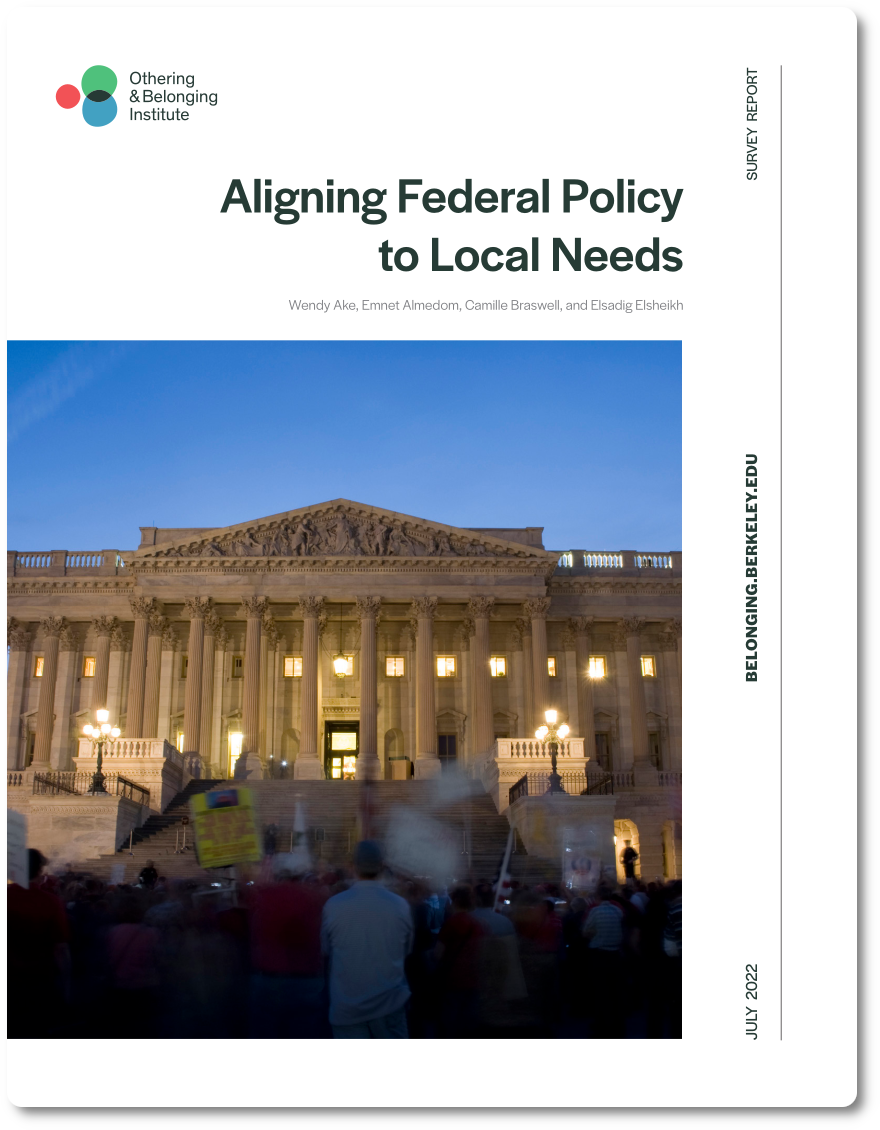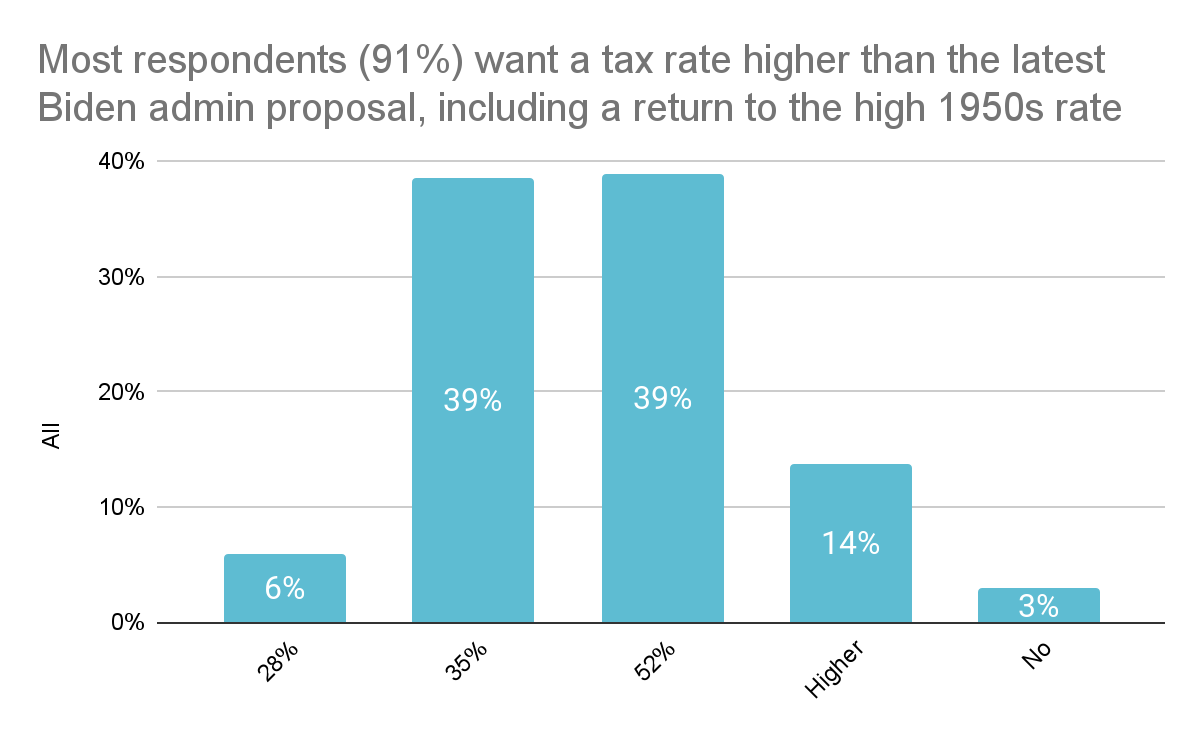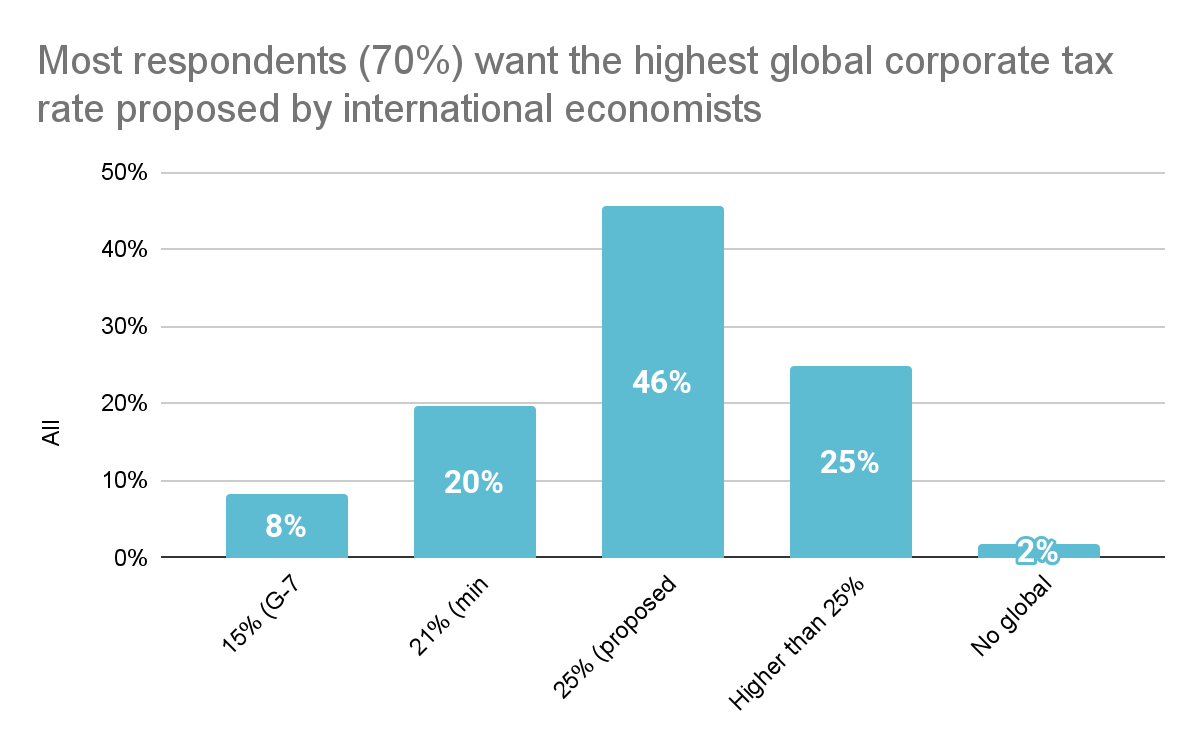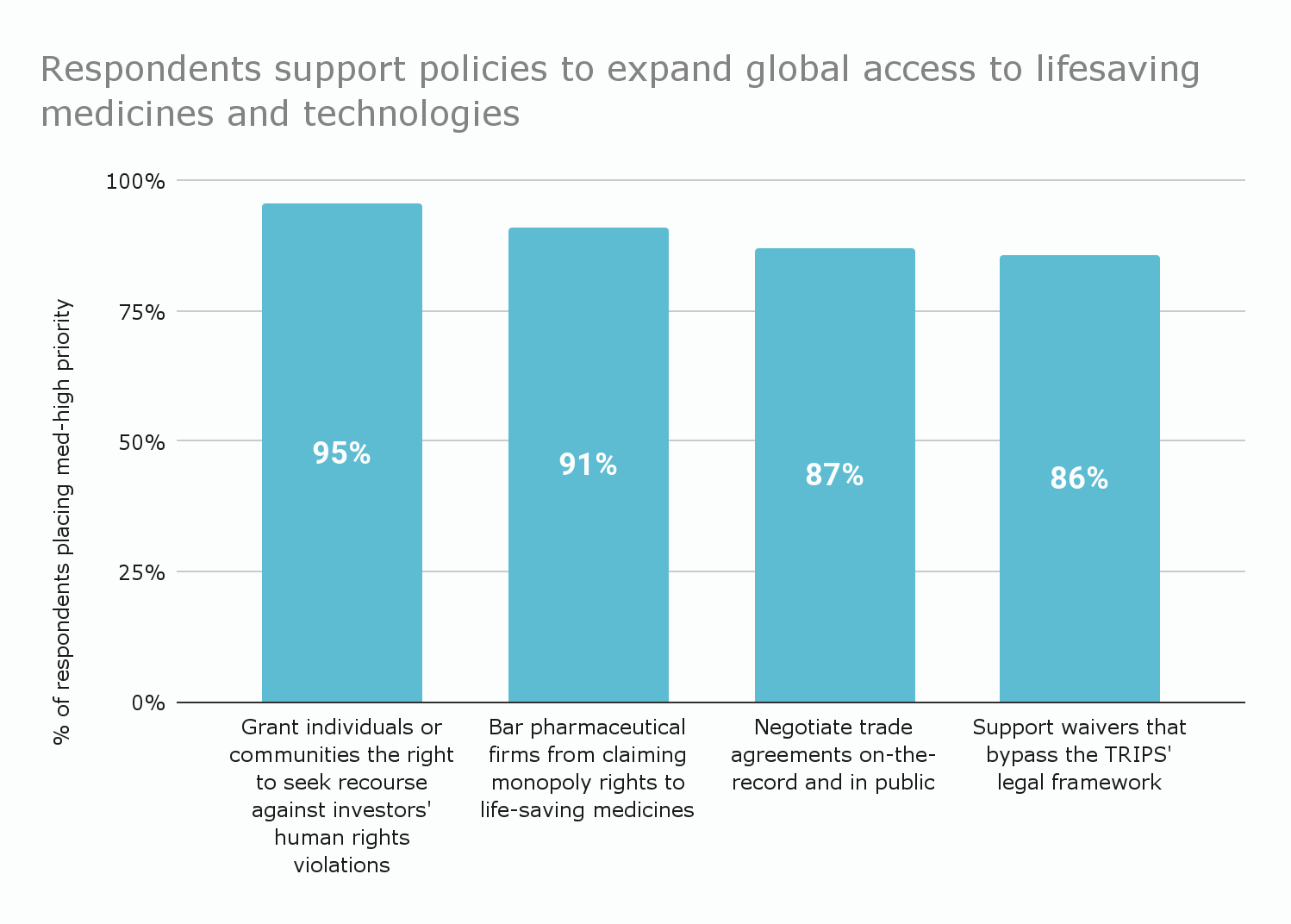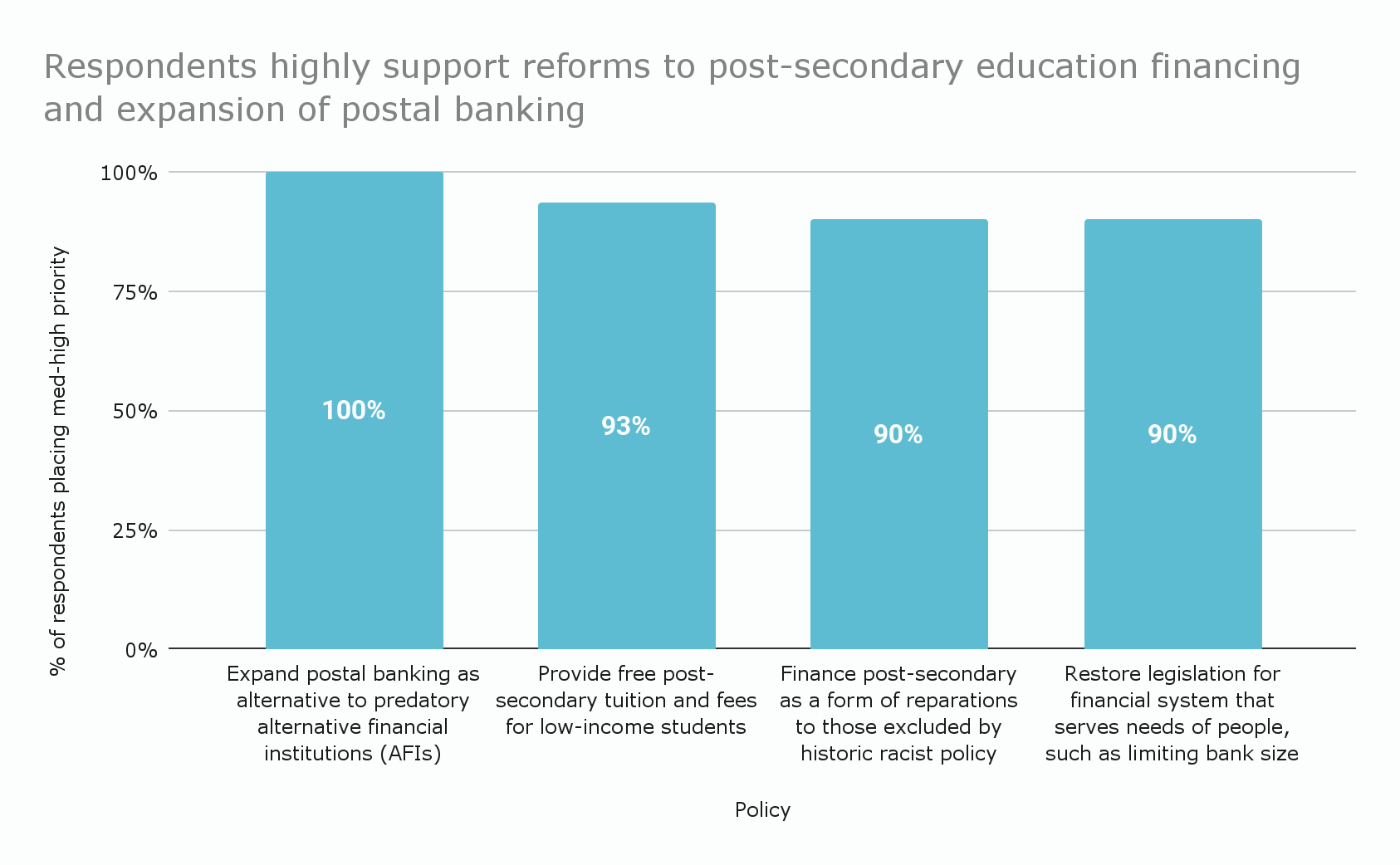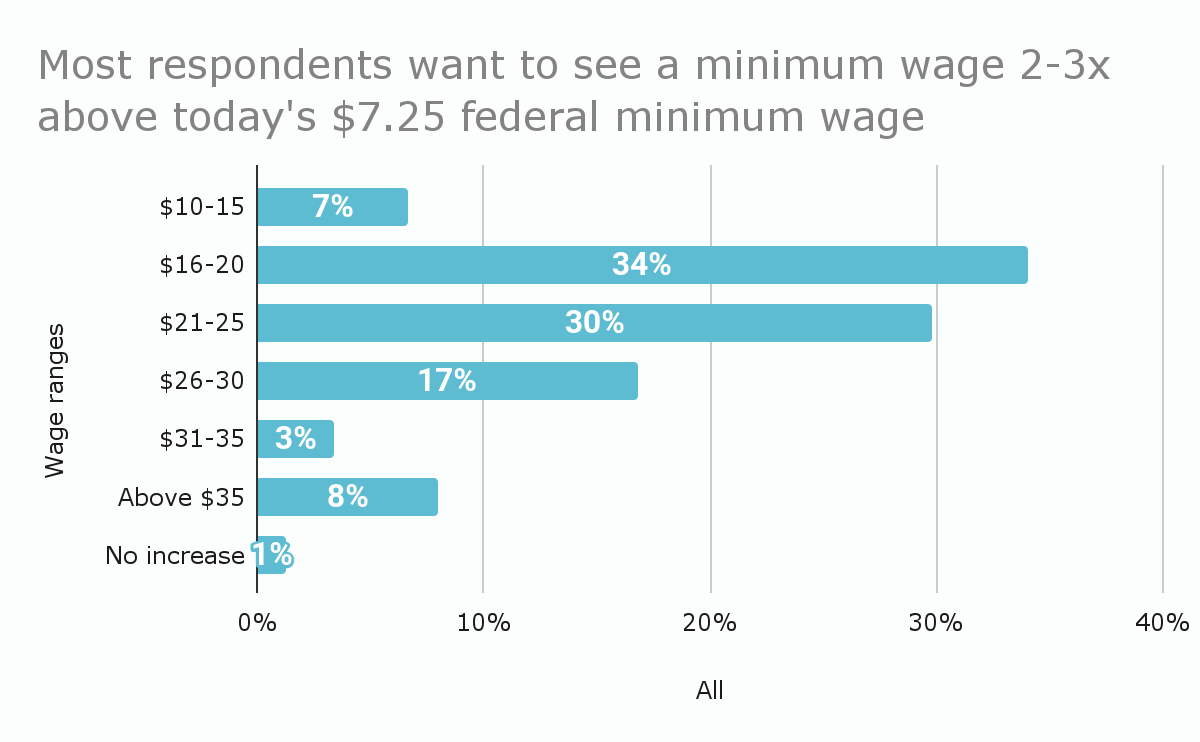We are pleased to release results from our Spring 2022 survey on long-term policy priorities at the federal level. Our team conducted landscape research of major policy platforms and visions to identify 100+ cross-cutting federal policies in five areas tied to crisis resilience: corporate power, consumer debt and public finance, worker rights, democratic rights. The recent passage of the Inflation Reduction Act (IRA) demonstrates a strong step in the right direction on several of the policy areas we identify, with ample room to set the future agenda for repair and just transition.
Our survey sample of 250 respondents is not meant to statistically represent any one population, but rather take a snapshot of opinions in progressive audiences and inspire future research and mobilization on a broad and bold federal policy agenda. Please see some of our top findings below and review the full report here.
Respondents support increases to corporate taxation and strategies to capture offshore wealth. Funding the IRS—a crucial element to enforcement of accountability mechanisms—is highly supported and should be more prioritized by policy advocates.
The Inflation Reduction Act’s increase of the global corporate tax rate to 15% and the increase in funding of the Internal Revenue Service (IRS) can be taken further. A plurality of survey respondents support a domestic corporate tax rate of 35% or higher and support setting a global corporate tax rate.
Respondents support policies to expand global access to lifesaving medicines and technologies
Mirroring high support for the reduction in pharmaceutical drug prices for American seniors via the Inflation Reduction Act (IRA), respondents support policies to expand global access to lifesaving medicines and technologies. In addition to direct climate finance and loss and damage payments, reforms to the global intellectual property regime are essential to capture the estimated global spillover effects of the United States’ domestic greenhouse gas reductions.
Alongside relief of medical and student debt, respondents highly support reforms to post-secondary education financing and expansion of postal banking
Medical and student debt are respondents’ top priorities for debt relief. This prioritization is in line with long-term prioritization of free post-secondary education, particularly for low-income students and as a form of reparations to those excluded by historic racist policy. Expansion of the postal banking system is the highest supported policy across the board, alongside reforms to bank size and risk accumulation.
Most respondents want to see a minimum wage 2-3x above today's $7.25 federal minimum wage
In addition to strong support for worker power-building, respondents recognize the need to raise the minimum wage consistently over time: an urgent, long-term solution to combat inflation now and in the future.
Our Takeaways
Alongside our Structural Remedies repository, this collection of proposals expands our vision for federal policy reform. We include a mix of targeted and universal approaches that acknowledge the need for repair in order to achieve universal goals of economic prosperity, access to education, and access to life-saving medicines.
We found high support for prioritizing global justice in federal policy agendas. The Covid-19 crisis revealed vast inequities in global access to vaccines. Advocacy can better center the United States’ role in the global intellectual property system that currently blocks open-sharing of technologies, from vaccines to climate adaptation tools.
Respondents support cross-sector policy solutions that center planetary health. In our landscape scan of federal policy priorities, we find that planetary health solutions can be lifted up in every sector. In agribusiness, respondents most prioritized a national plan and targets to address the impact of agriculture on climate change. The creation of better conditions for care work and for all of us who receive care in one form or another is a green solution, as identified by climate and care experts and in the original Build Back Better agenda.
These strategic focus areas for federal policy agendas and narratives are explored in our forthcoming piece. Our survey data is complemented by case study research and interviews with movement organizations on the possibilities and challenges of pursuing these federal policy agendas.



